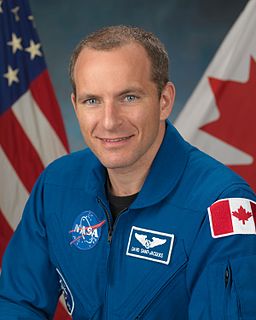A Quote by Vinod Khosla
There's a big difference between needs and requirements for grid-based electricity versus those for distributed rural homes or remote locations, or even rooftop solar, where photovoltaics do OK. The more economical a technology is, the faster we'll see adoption.
Related Quotes
Germany has a lot of solar power. In fact, in 2005, some 55 or 57 percent of worldwide installations were photovoltaics in Germany. That's 57 percent of all worldwide solar photovoltaics. Because of the high feed-in tariff, they have a way of allowing you to produce electricity and ship it into the grid at very high prices.
Our customer base isn't just people saying, 'I'm an environmentalist, I'm in my Birkenstocks, I went to Woodstock.' Solar is a bipartisan technology. Republicans like solar; conservatives like solar. Over 30% of our customers are veterans. There's something very American about being able to produce power on your own rooftop.
Space is our tool to take care of the world. From space, we know the Earth is fragile, and we can follow oil spills and forest fires, and monitor the environment and save it. The needs of remote communities and the needs of astronauts are similar. Canada is a country that is big and has a lot of people living in faraway places. Physicians in remote areas need to have contact with more senior colleagues. We depend on telehealth for advice, X-rays, labs. At the most simple technical level, space technology contributes to remote health care.
People always think of technology as something having silicon in it. But a pencil is technology. Any language is technology. Technology is a tool we use to accomplish a particular task and when one talks about appropriate technology in developing countries, appropriate may mean anything from fire to solar electricity.
Environmentalism needs to be absolutely based in objective and verifiable science, it needs to be rational, and it needs to be flexible. And it needs to be apolitical. To mix environmental concerns with the frantic fantasies that people have about one political party or another is to miss the cold truth - that there is very little difference between the parties, except a difference in pandering rhetoric.
I have no opposition at all to technology. I think technology is a wonderful thing that has to be used thoughtfully, and we can't just assume that every bit of new technology improvesthe quality of life; it's really in how the technology is used. What I am very disturbed about is this trend of everything happening faster and faster and faster and there being more and more general noise in the world, and less and less time for quiet reflection on who we are, and where we're going.
All one needs to do is just to go to any hospital in America and see the number of Pakistani or Indian or Lebanese, or Syrian, or Egyptian doctors, who are either first generation or themselves immigrants, to know, and I'm a big believer - brains are distributed evenly around the world. What aren't distributed evenly are opportunities, stable government, educational institutions, etc.
Mothers know the difference between a broth and a consommé. And the difference between damask and chintz. And the difference between vinyl and Naugahyde. And the difference between a house and a home. And the difference between a romantic and a stalker. And the difference between a rock and a hard place.

































